As a first-generation college student and the oldest of five siblings, junior journalism education major Aric Fulton Jr. said he didn’t have a role model to look up to when applying for college, so he feels the need to be one for his brother and sisters.
“One thing that I really try to stress to my little brother is you don't have to be a basketball player or a football star to be somebody,” Fulton said. “I want to show my siblings that what I'm doing, you can do too. I want to show them that it doesn't matter what society is saying about you or us. We can be successful. We can be educated.”
During his freshman year, Fulton said, he wasn’t very involved in campus activities, and he didn’t make the Dean’s List, which was a personal goal for him.
“My first semester, I had a 2.9 [GPA],” Fulton said. “Second semester, I was literally 0.1 away [from making the Dean's List] because I got an A-minus, and the professor would not bump my grade up. After that, I set a goal for myself to make sure that I got on the Dean's List because it's important to me … My freshman year, I didn't really feel connected on our campus, so ... I made another goal for myself. I told myself, ‘You need to put yourself out there. You need to get involved.’”
Fulton then joined the University Program Board (UPB), Alpha Phi Omega and Black Student Association (BSA). He also became an ambassador for the Department of Journalism and a Resident Assistant at Kinghorn Hall.
Since summer 2019, Fulton said, he has also been attending conferences across the country for networking opportunities to help him dive into education policy, an area he is interested in pursuing after graduation.
“This past summer, I went to the University of Akron School of Law, and that program was geared toward first-generation college students who are from marginalized backgrounds who have an interest in pursuing a law degree, which is something that I want to do after undergrad within educational policy,” Fulton said. “[At that conference, there] was a lot of underrepresented populations. It was majority black, so it was nice to be around people who shared a similar background as me.”
Even though Fulton said he felt he had even more room to grow with leadership skills, Emily Rutter, assistant professor of English who Fulton had for Introduction to African-American Literature and African-American Literature and Traditions, said she has already seen Fulton demonstrate leadership qualities.
“I think about this metaphor where you get invited into the boardroom, but just your presence there doesn’t do anything to disturb the status quo,” Rutter said. “Aric is good at holding the door for other people rather than just thinking about himself.”
This year, while applying for the Forbes Scholarship to go to his most-recent conference — the Forbes Under 30 Summit — Fulton said he encouraged Kaylah Bell, senior elementary major, and Tazia Williams, senior human resource management major, to apply with him.
The three found out they received the scholarship in August 2019, which paid for the $500 fee to attend the conference.
“We all went to high school together,” Bell said. “We all started in a school system that didn’t really value their students. We talked and asked [each other], ‘Four years ago today, did you really think we were going to be here [at the Forbes Under 30 Summit]?’”
While in Detroit, Fulton, Bell and Williams heard from speakers such as Serena Williams, Kevin Durant and Olivia Munn and watched performances from artists such as Normani, The Chainsmokers and 21 Savage. On the last day of the conference, the three volunteered at the Boys and Girls Club of Detroit.
To represent Ball State at the Forbes Under 30 Summit, Fulton said, was a “dope opportunity,” and he was excited to show his Cardinal pride in Detroit.
“I was at first discouraged because a lot of people who [attended] the conference are from the top 10 [universities],” Fulton said. “As more people got accepted into the program, I've seen a lot of other types of schools, like small schools and even some from community colleges, [who came] to represent their university.”
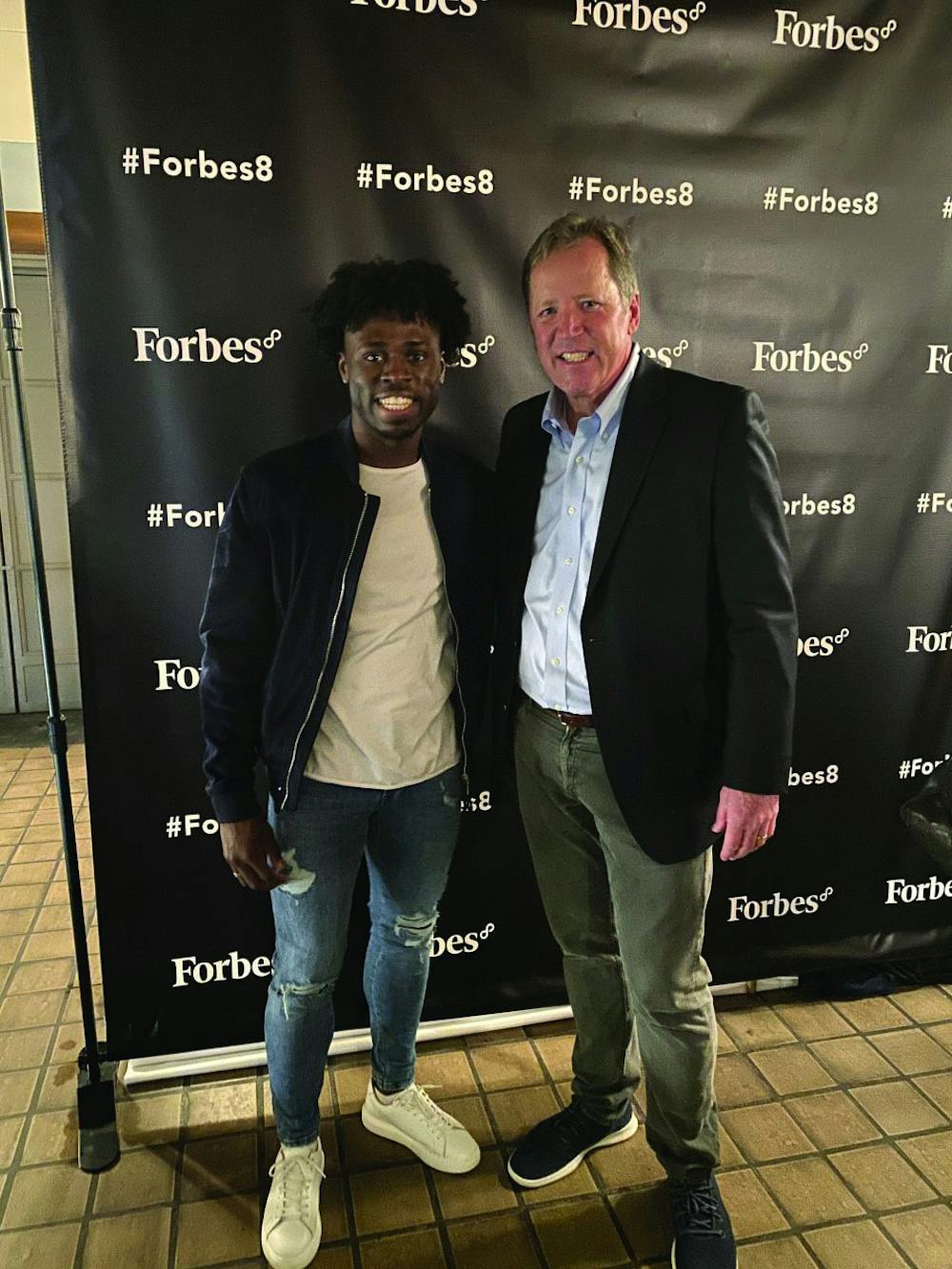
At the Forbes Under 30 Summit, junior Aric Fulton Jr. met Mike Federle, the CEO of Forbes. Fulton had the opportunity to also meet and hear from other entrepreneurs who were speakers at the conference. Aric Fulton, Photo Provided
Williams said one of her favorite parts of the conferences was the “For(bes) the Culture” segment, aimed toward marginalized people, where panelists discussed how they overcame barriers from being the only person of color or of their gender throughout their professional careers.
“I know there are successful black women out there, but actually being able to sit in a room and listen to their knowledge and visually see it for [myself] was so inspiring, especially as a first-generation college student trying to navigate my entry into the professional world,” Williams said.
As Williams looks toward going to graduate school, she said attending the conference has made her feel less afraid of the unknown, and it has provided her, Bell and Fulton with networking opportunities.
“I’ve made connections with scholars all over the world on LinkedIn,” Williams said. “They are constantly sharing opportunities and encouraging. Many of the Forbes Under 30 Scholars are doing amazing things, and I’m sure I’ll go off to do the same.”
Being at the Forbes Under 30 Summit, Fulton said, gave him the assurance he needed that all his hard work has not been in vain.
“Sometimes, I wonder, ‘Why am I working so hard?’” Fulton said. “A takeaway [from the conference] was the work doesn’t stop now. I’m going to have to continue to work hard and put myself in spaces I may feel uncomfortable so I can grow and bring other people along with me.”
Contact Grace McCormick with comments at grmccormick@bsu.edu or on Twitter @graceMc564.

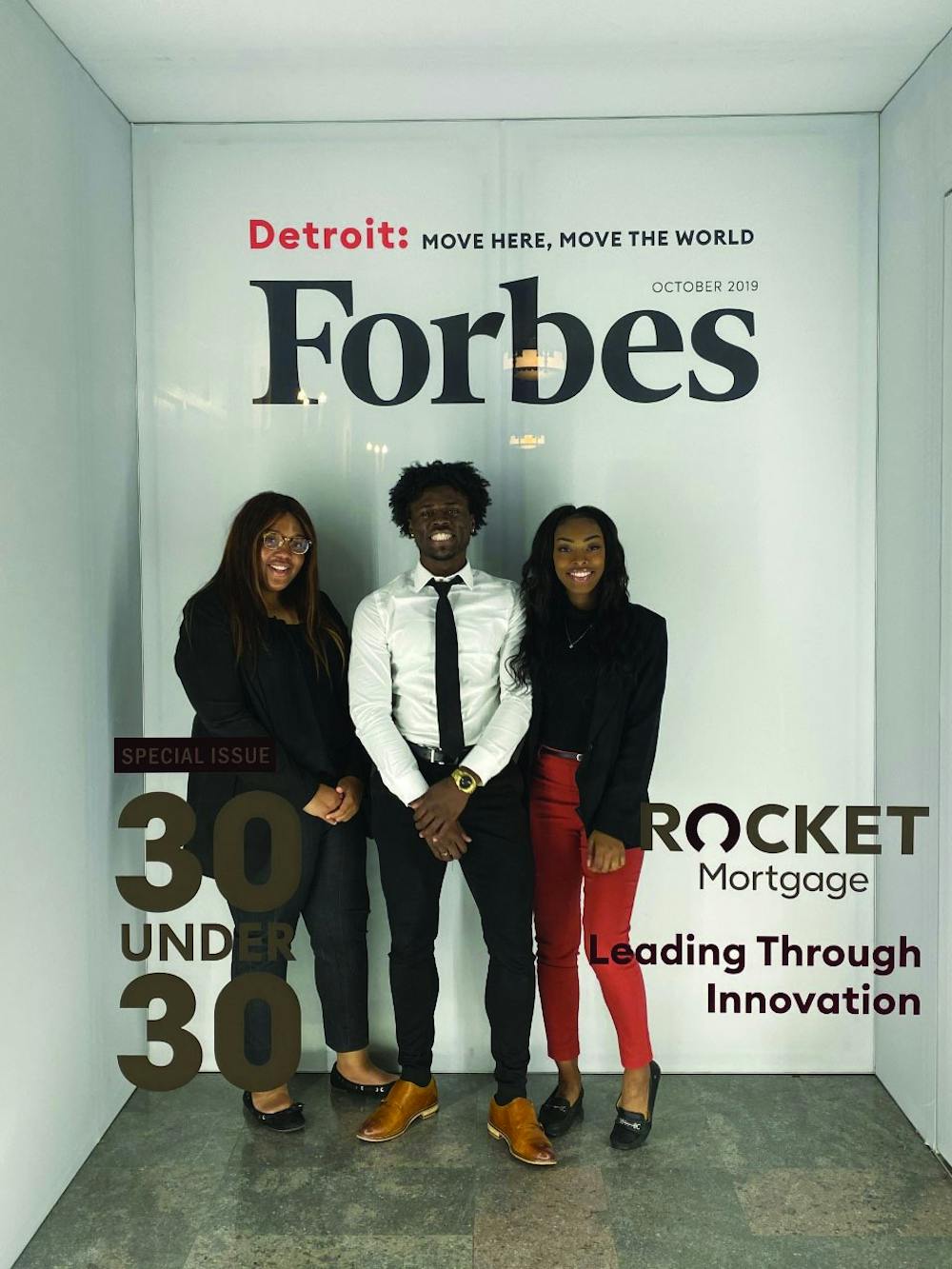
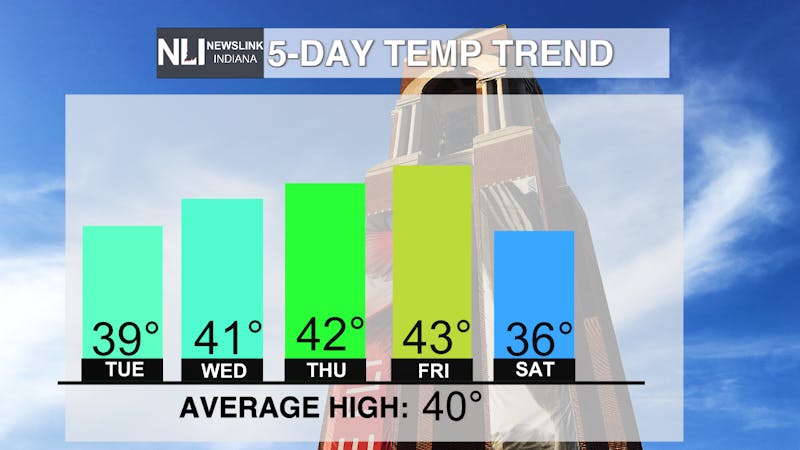
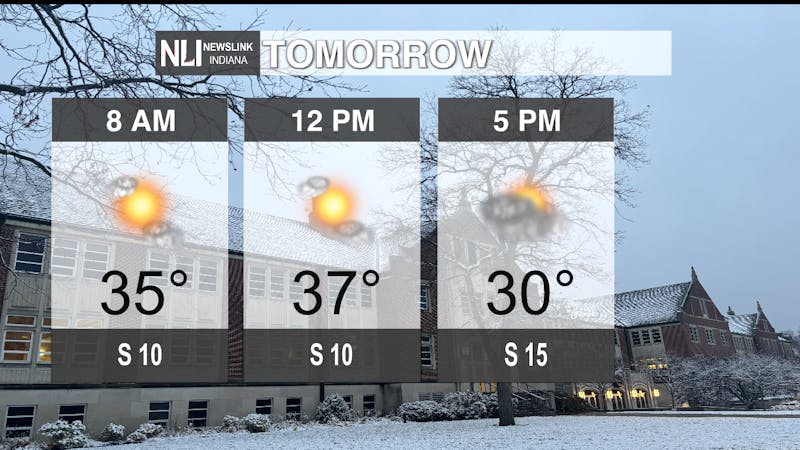
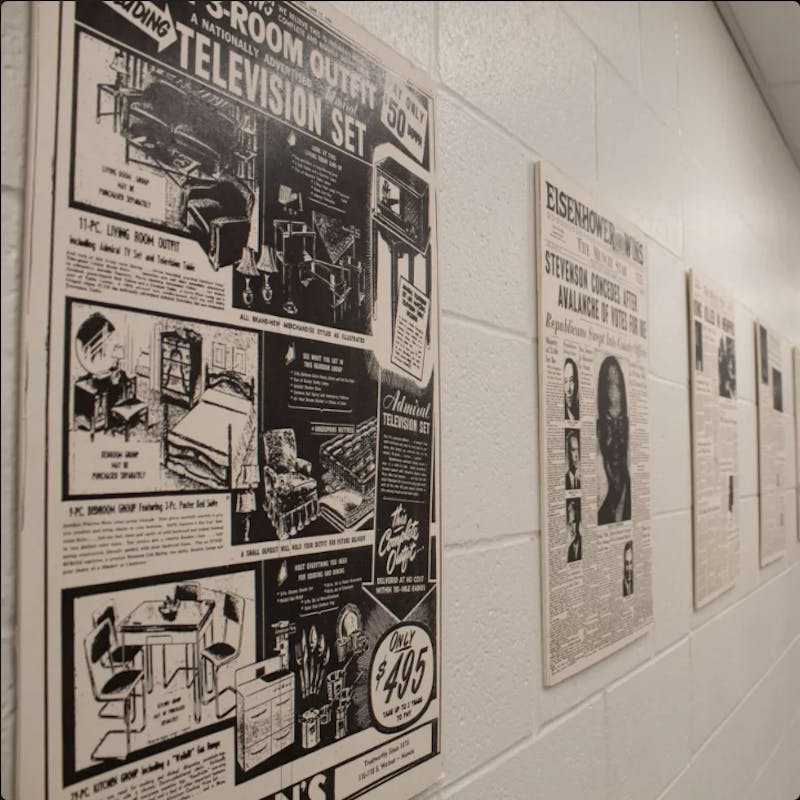
The Daily News welcomes thoughtful discussion on all of our stories, but please keep comments civil and on-topic. Read our full guidelines here.